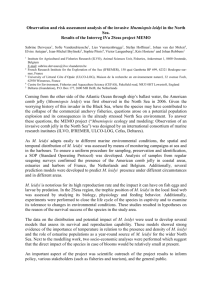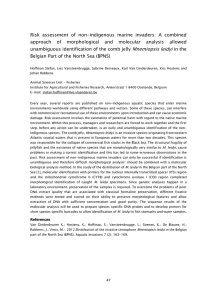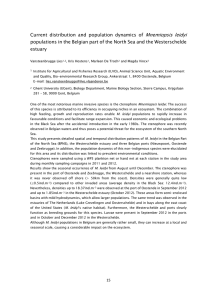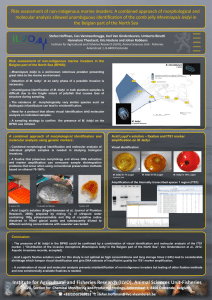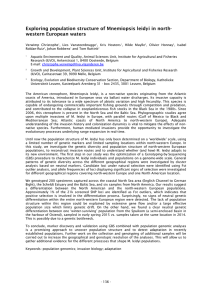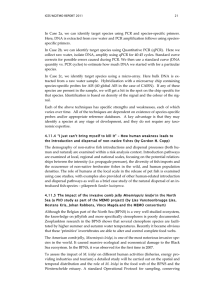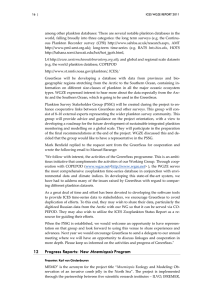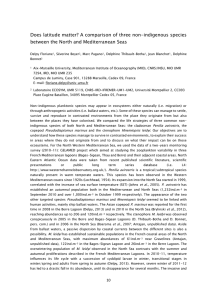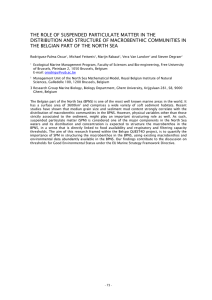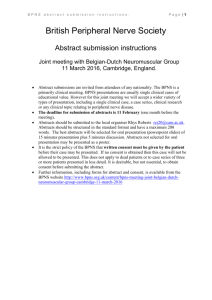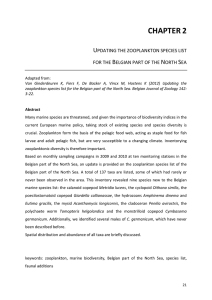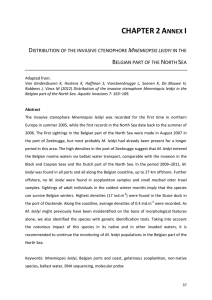MNEMIOPSIS LEIDYI NORTH SEA
advertisement
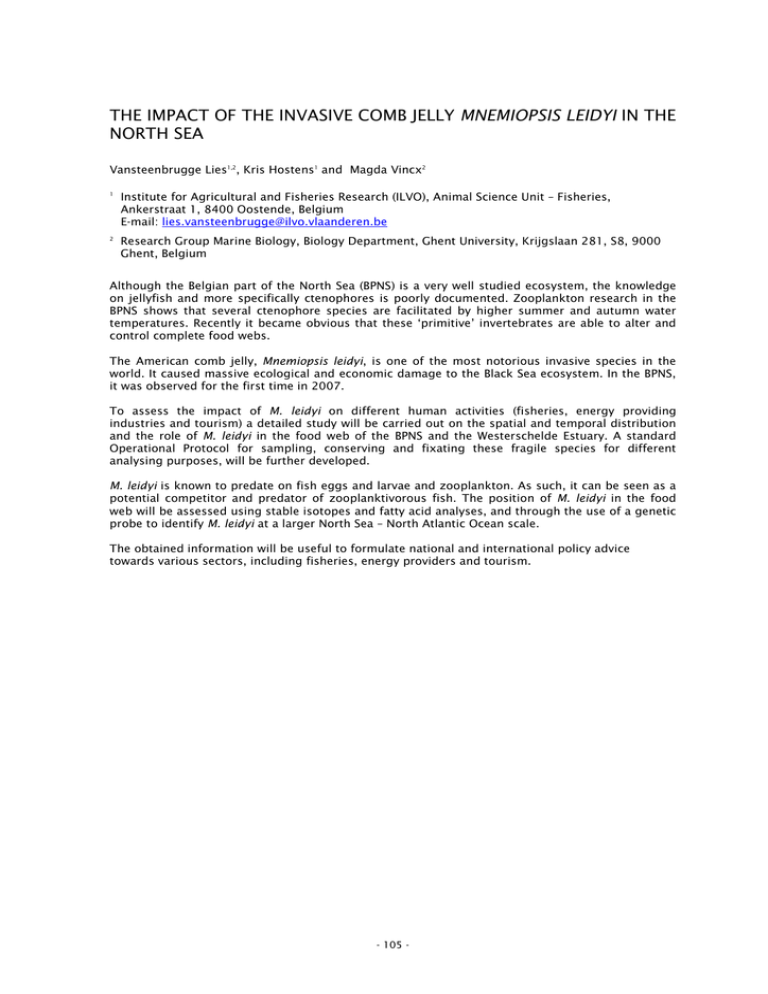
THE IMPACT OF THE INVASIVE COMB JELLY MNEMIOPSIS LEIDYI IN THE NORTH SEA Vansteenbrugge Lies1,2, Kris Hostens1 and Magda Vincx2 1 Institute for Agricultural and Fisheries Research (ILVO), Animal Science Unit – Fisheries, Ankerstraat 1, 8400 Oostende, Belgium E-mail: lies.vansteenbrugge@ilvo.vlaanderen.be 2 Research Group Marine Biology, Biology Department, Ghent University, Krijgslaan 281, S8, 9000 Ghent, Belgium Although the Belgian part of the North Sea (BPNS) is a very well studied ecosystem, the knowledge on jellyfish and more specifically ctenophores is poorly documented. Zooplankton research in the BPNS shows that several ctenophore species are facilitated by higher summer and autumn water temperatures. Recently it became obvious that these ‘primitive’ invertebrates are able to alter and control complete food webs. The American comb jelly, Mnemiopsis leidyi, is one of the most notorious invasive species in the world. It caused massive ecological and economic damage to the Black Sea ecosystem. In the BPNS, it was observed for the first time in 2007. To assess the impact of M. leidyi on different human activities (fisheries, energy providing industries and tourism) a detailed study will be carried out on the spatial and temporal distribution and the role of M. leidyi in the food web of the BPNS and the Westerschelde Estuary. A standard Operational Protocol for sampling, conserving and fixating these fragile species for different analysing purposes, will be further developed. M. leidyi is known to predate on fish eggs and larvae and zooplankton. As such, it can be seen as a potential competitor and predator of zooplanktivorous fish. The position of M. leidyi in the food web will be assessed using stable isotopes and fatty acid analyses, and through the use of a genetic probe to identify M. leidyi at a larger North Sea – North Atlantic Ocean scale. The obtained information will be useful to formulate national and international policy advice towards various sectors, including fisheries, energy providers and tourism. - 105 -
